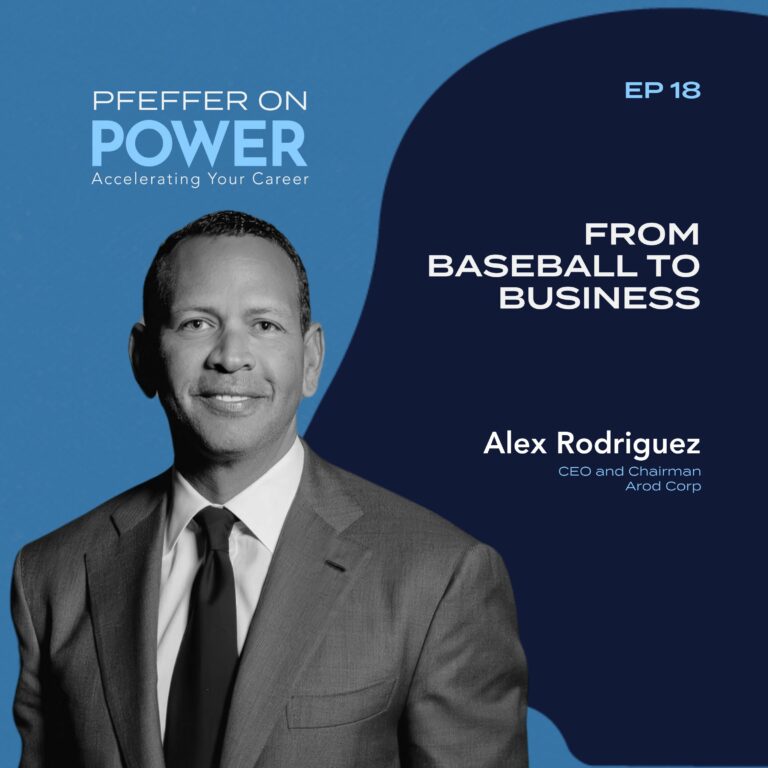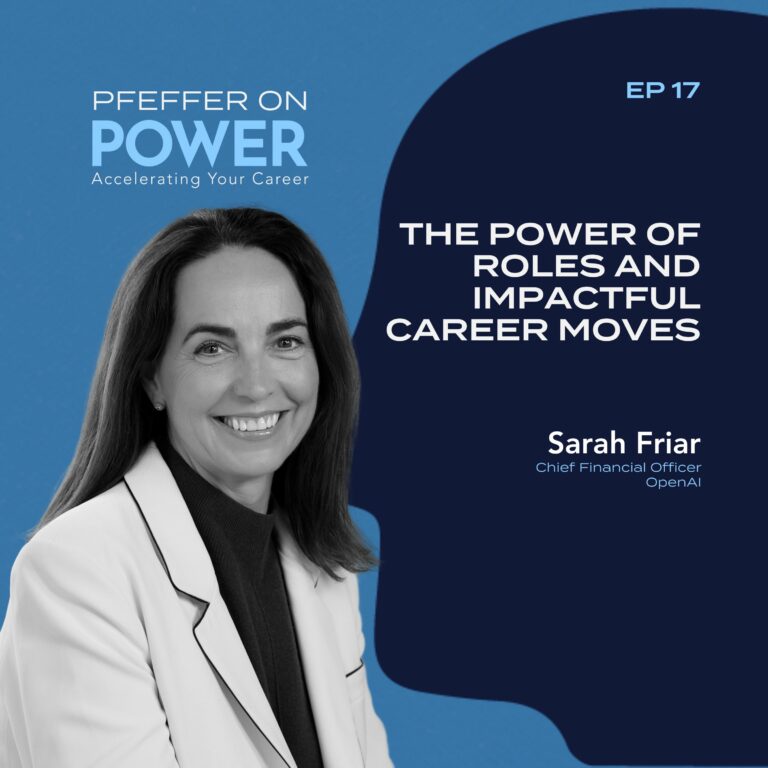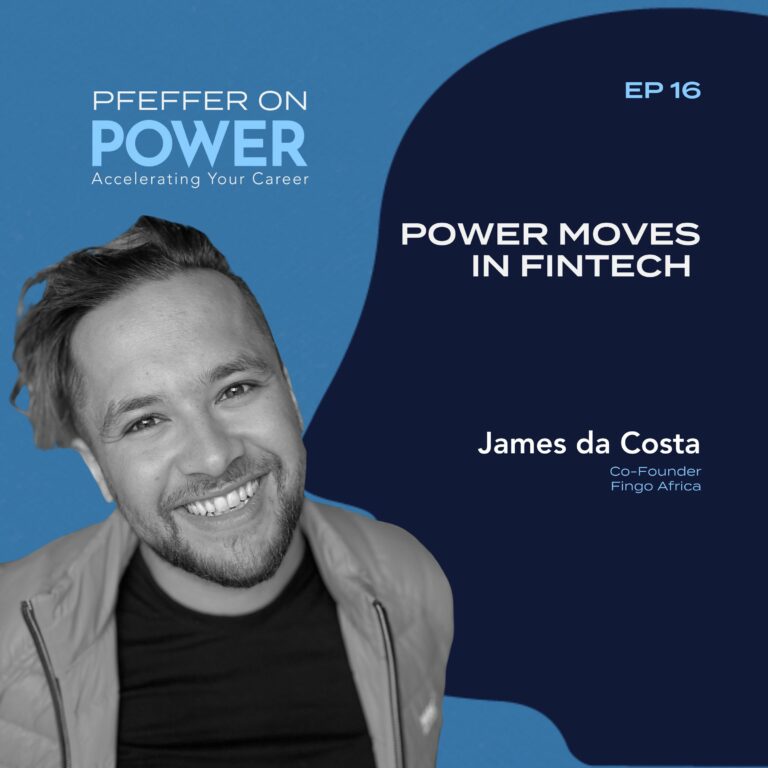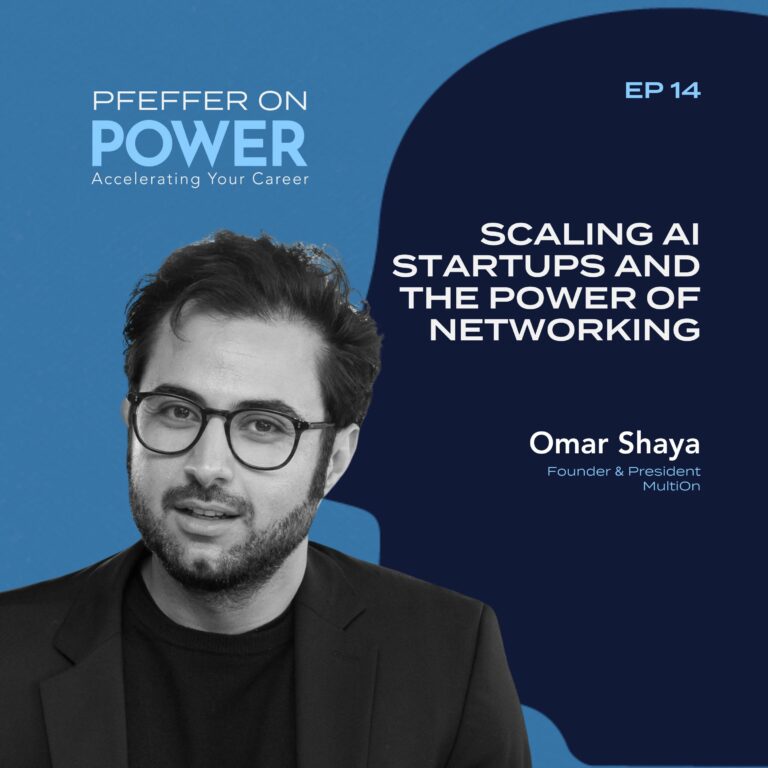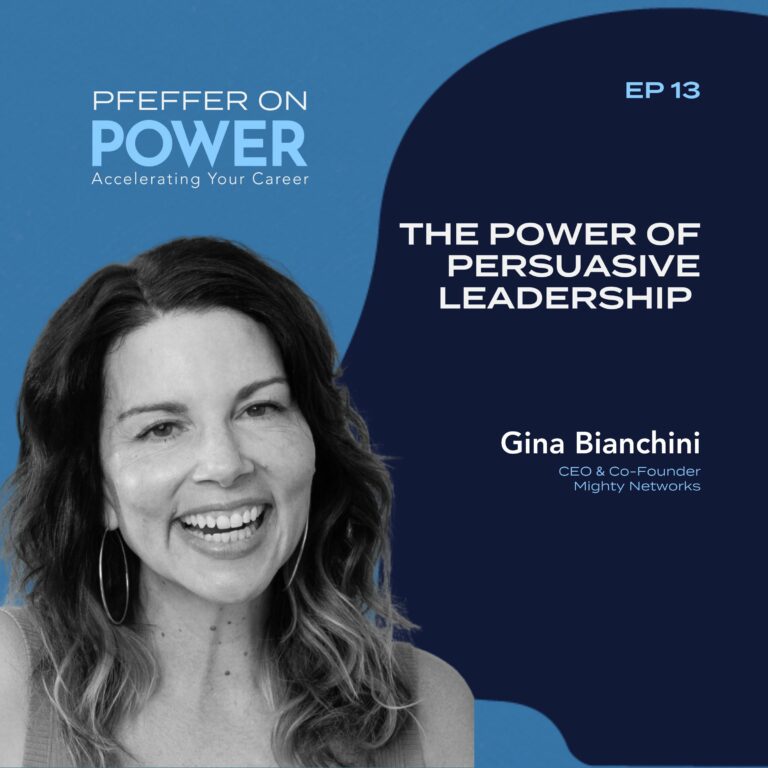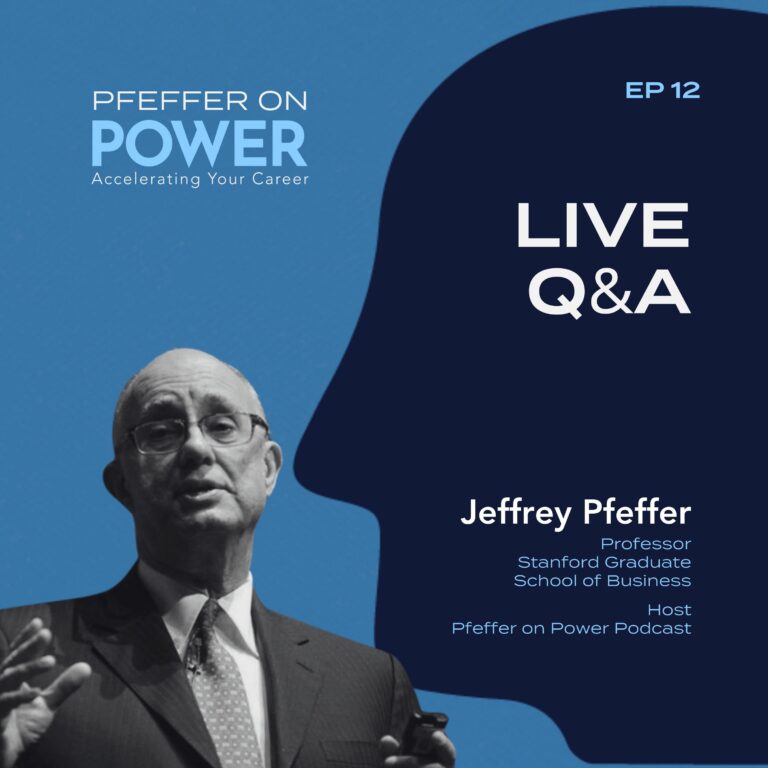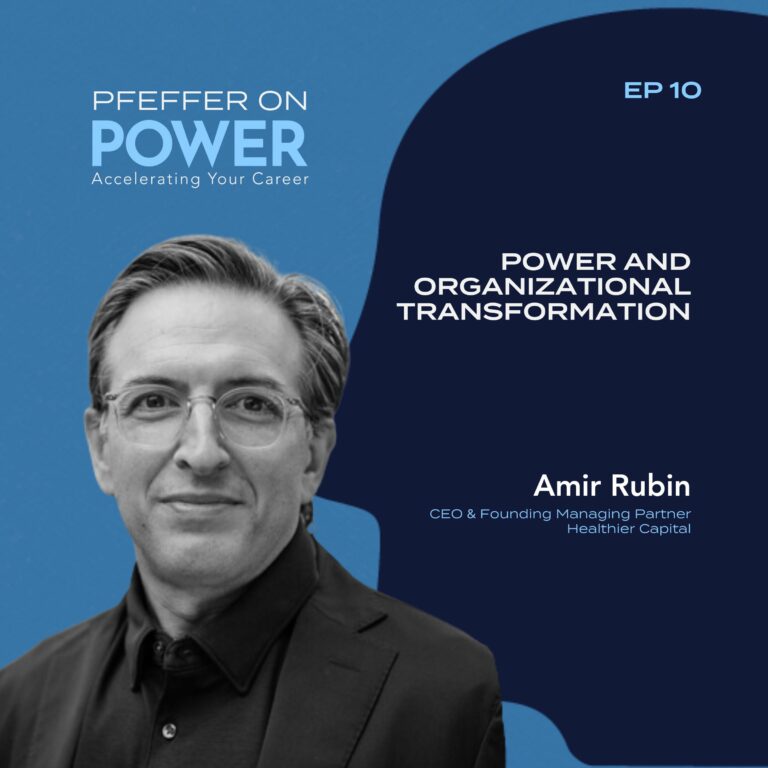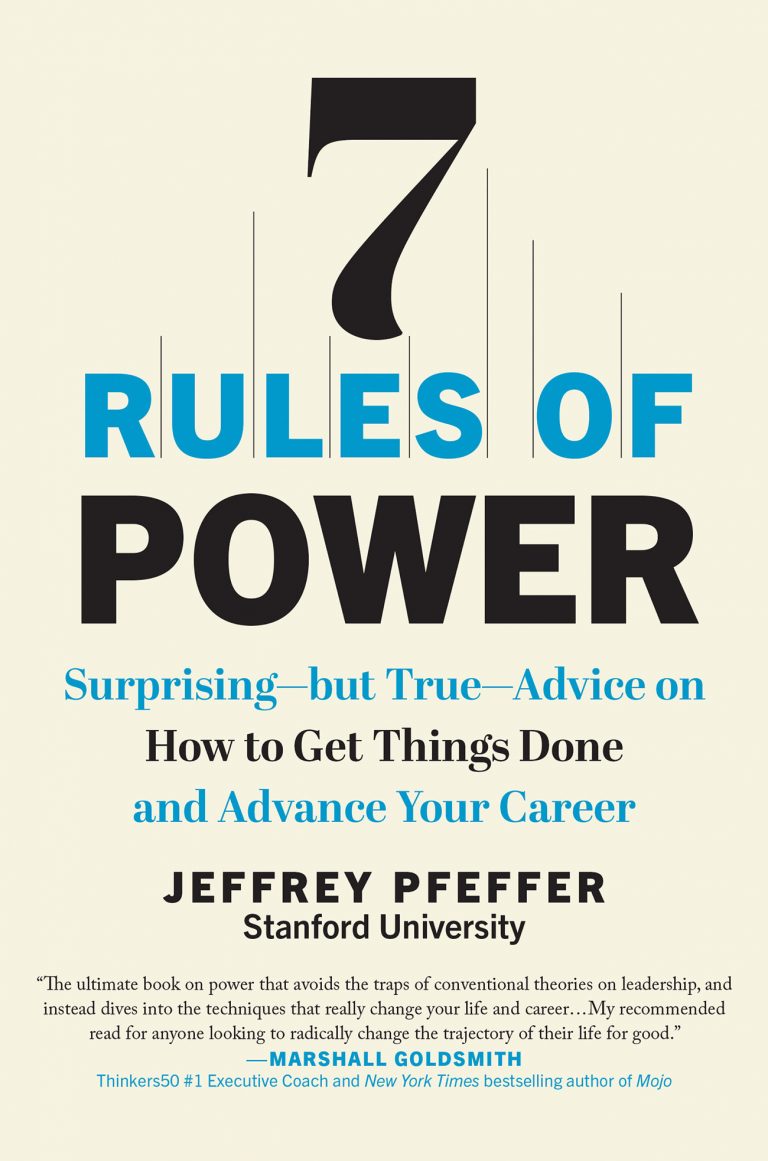Pfeffer on Power
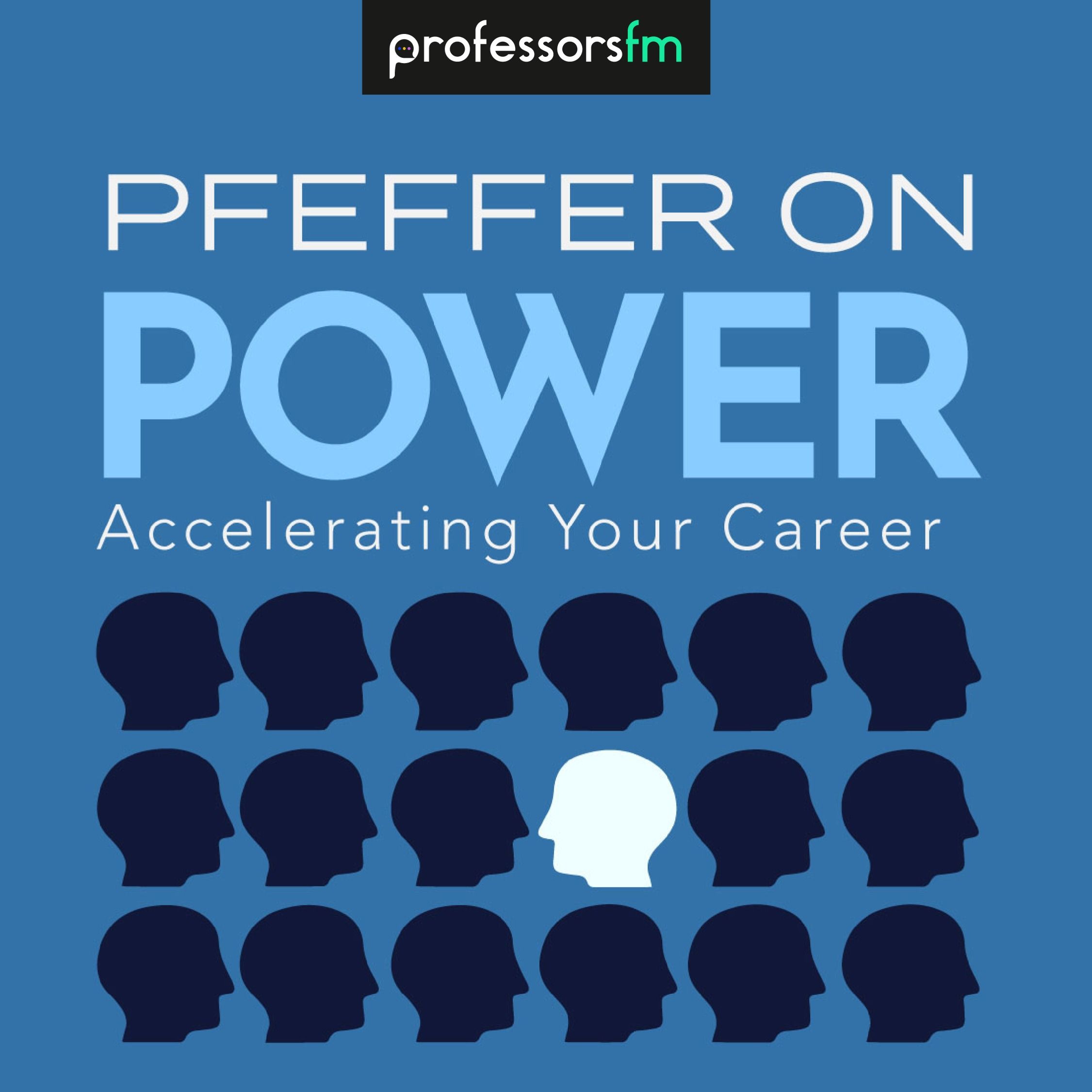
Jeffrey Pfeffer is a professor at Stanford’s Graduate School of Business, Author of ‘7 Rules of Power,’ and speaker. Each episode he sits down with a guest who has used these rules of power to enhance and advance their businesses and their own careers in the process. Listen to hear real advice about practical uses of power from the people who wield it in their professional lives with great skill. Level up your own game, and get comfortable with your own POWER.
In this episode of the 'Pfeffer on Power' podcast, host Jeffrey Pfeffer, a professor at Stanford University's Graduate School of Business, is joined by Alex Rodriguez, CEO and Chairman of investment firm Arod Corp, and is known as one of the greatest baseball players of all time, and Matt Abrahams, of the Think Fast Talk Smart podcast to co-host this interview.
Alex discusses his transition to business and teaching at Stanford. Rodriguez, who co-teaches a class on Strategic Pivoting with Professor Allison Kluger, shares insights into their teaching framework and what he’s learned through teaching.
Alex also emphasizes the importance of self-awareness, resilience, and preparation in both his athletic and business endeavors. Alex also touches on handling setbacks, maintaining authenticity, and the value of humility and gratitude in personal development. Alex also shares what he’s learned about effective communication and team-building, and how it can help shape young leaders and athletes.
Pfeffer on Power is produced by University FM.
Episode Quotes:
Finding resilience in the face of setbacks
23:07: [Jeffrey Pfeffer] So, what advice, in coming back from setbacks—which is, I think, amazing—how did you find the inner resilience to do this?
23:29: [Alex Rodriguez] This is tough. I mean, everybody handles setbacks their own separate way. I don't care who you are. I mean, I don't care how perfect you are. Name the best CEO—he or she—they've had setbacks, I guarantee it. So, again, I think this is where baseball has really helped me because baseball is the epitome of setbacks. So, I think having the resilience, the confidence, the perseverance from inside to keep trying. I mean, I remember in my darkest hour, I would send 10 emails out—one or two responded—and it was heartbreaking. And part of it was 'cause I was a pariah, and people don't wanna be around me. And Allison works really, really hard with the administration, like, you know, vouching for me. And it's something that I'll never forget. I mean, here I am, in my darkest hour, trying to fight back. And Allison, out of all people—they're probably saying, "There are 750 major league baseball players. This is the one? You got the guy that got suspended for all these years?" And she's like, "Yeah, he's actually a nice guy," and this and that. It's like, "Ah, I'm not sure if I'm buying it." But, I mean, here we are seven years later, and I couldn't be more proud of the partnership.
How Alex shapes his communication style with his skills
29:38: I think my style of communication is a blend between sports and business, and a little bit of entertainment and levity. I always think about, what is the number one or two things that I'm trying to deliver, and then I'm trying to go—every good story has a good headline, has a beginning, middle, and end. And then maybe go back and repeat my headline, and if I can say more with less words, the better.
What makes a great communicator
28:28: Part of being a great communicator is sticking to your circle of competence—speak with passion, but about something where you have real knowledge, where you have something to actually add.
Show Links:
